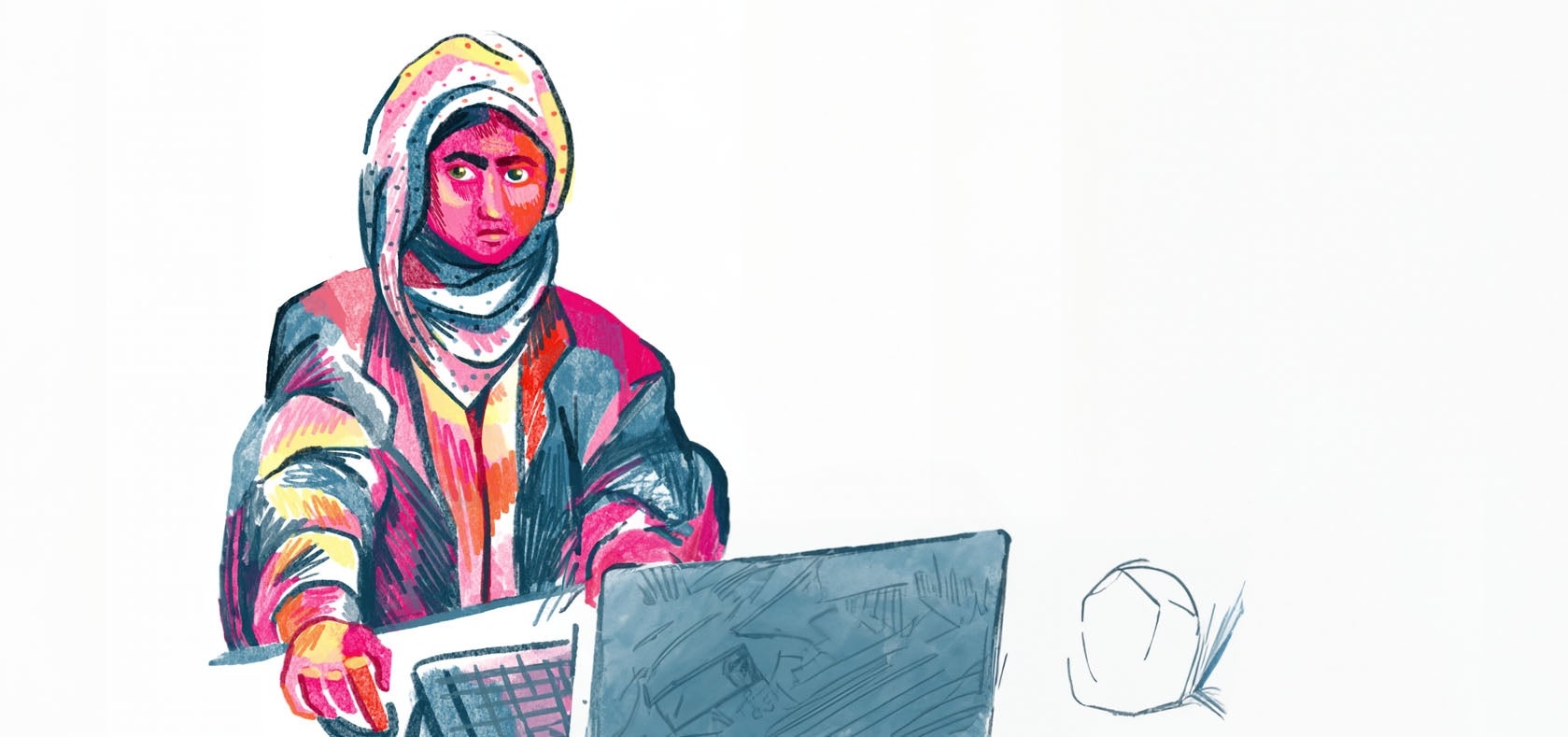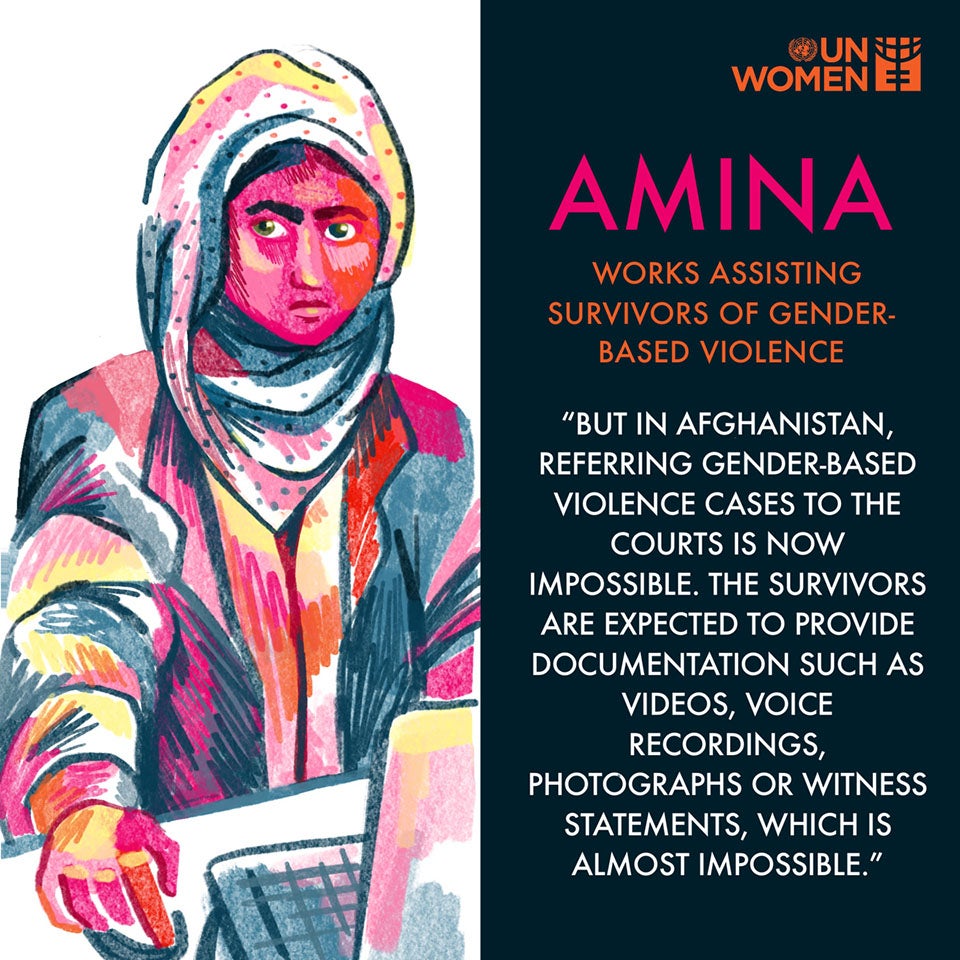A day in the life of a service-provider trying to confront gender-based violence in Afghanistan
Date:

Amina[1] works for an Afghan-women-focused organization that seeks to assist survivors of gender-based violence. Every day brings new challenges, but she recalls one particular day last year as typical of the struggles they face.
“I had travelled to monitor one of our projects after hearing from our legal adviser about a 15-year-old girl who was suicidal and had come to our office.
The girl was wearing a long black hijab and a cream-coloured headscarf. She was very beautiful, with white skin and green eyes, but she was very thin and frail. When she came to our office, I was shocked and confused because she looked so much younger than 15 years.
I met her and told her to explain everything. The girl cried a lot, and I could not stop my own tears. I have a daughter almost the same age and it was just so hard to believe that a family member could do this to a girl so young. What can we expect from the community if girls cannot be safe in their own homes?
The girl was afraid of other people finding out what had happened to her. Most girls in Afghanistan do not tell anyone if they have been raped because they have nowhere to turn to, and they do not want to be shamed. Girls fear not being believed and that they will be blamed for the violence, and parents fear that such cases will reflect negatively on them.

This girl did not even seek our help directly. She had been coming to our centre for one of our trainings, and my colleagues noticed that she looked sad all the time and never spoke to anyone. One of my colleagues spoke to her privately in her office. The first and second time, the girl did not trust enough to open up. But after the third time she finally shared part of her story.
After hearing her story in person, we tried to support her with counselling.
But in Afghanistan, referring gender-based violence cases to the courts is now impossible. The survivors are expected to provide documentation such as videos, voice recordings, photographs or witness statements, which is almost impossible.
Only informal legal proceedings between the family are allowed now. So, our advice focuses on Islamic thought and how it addresses violence against women. We inform women about their rights within Islam and that in fact Islam forbids violence against women. We also inform families about this, so they can make fair and just decisions when mediating cases of violence against women.
At one point, the girl tried to jump off the roof of her house, but her family managed to stop her. They brought her to our centre, saying she had psychiatric problems, so we had to tell them what was happening to her.
There are many cases like this that come to us and we just do not know how to handle them in the complete absence of institutional frameworks and rule of law.
I met with the girl twice, then again 6 months later, when she was better. She also had a follow-up meeting with our counsellor this year, who said her mental condition is much improved. She has not recovered completely, but she is no longer suicidal. She has refused to marry anyone because of the trauma she has experienced. We continue to follow up with her by phone.”
[1] Name changed to protect her identity.